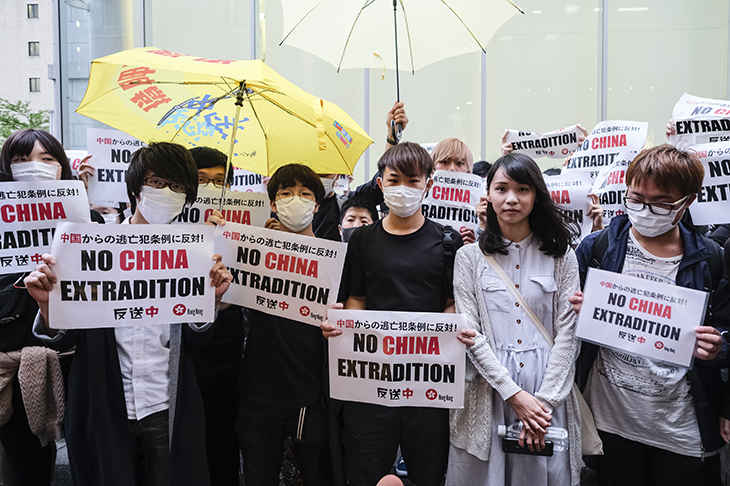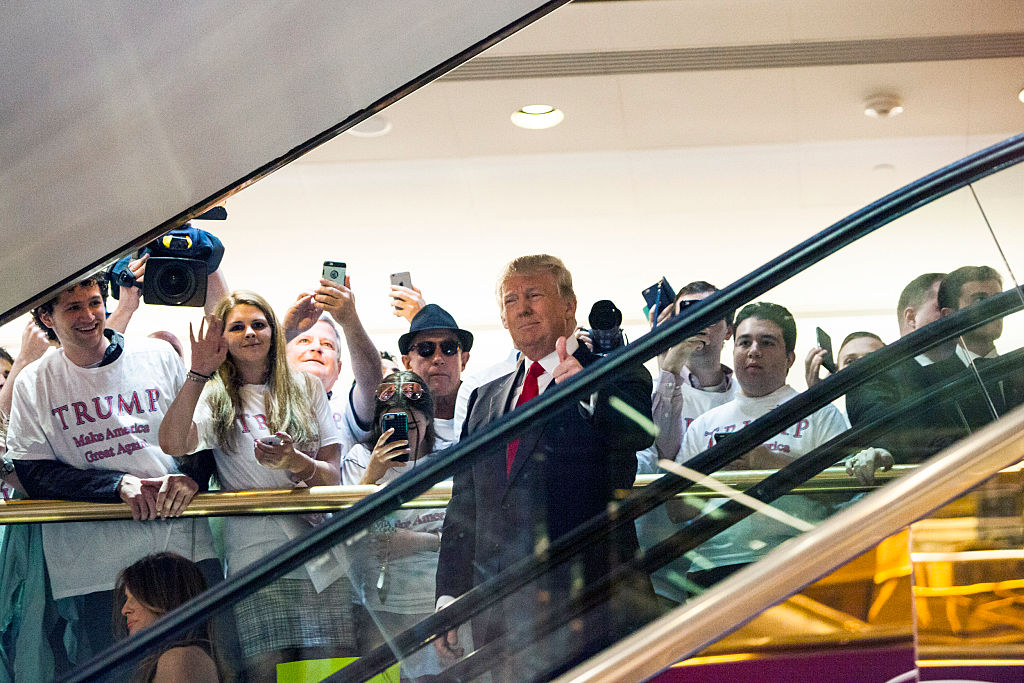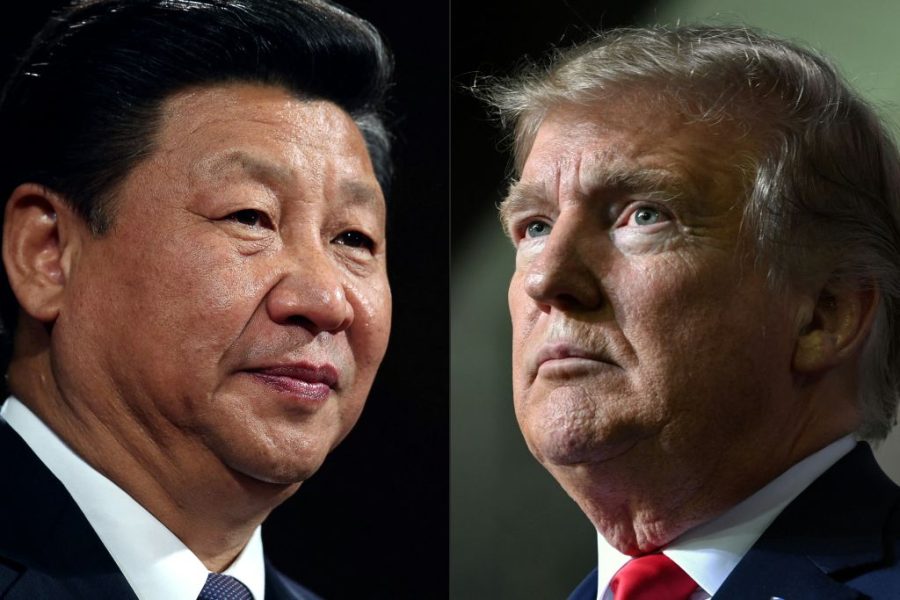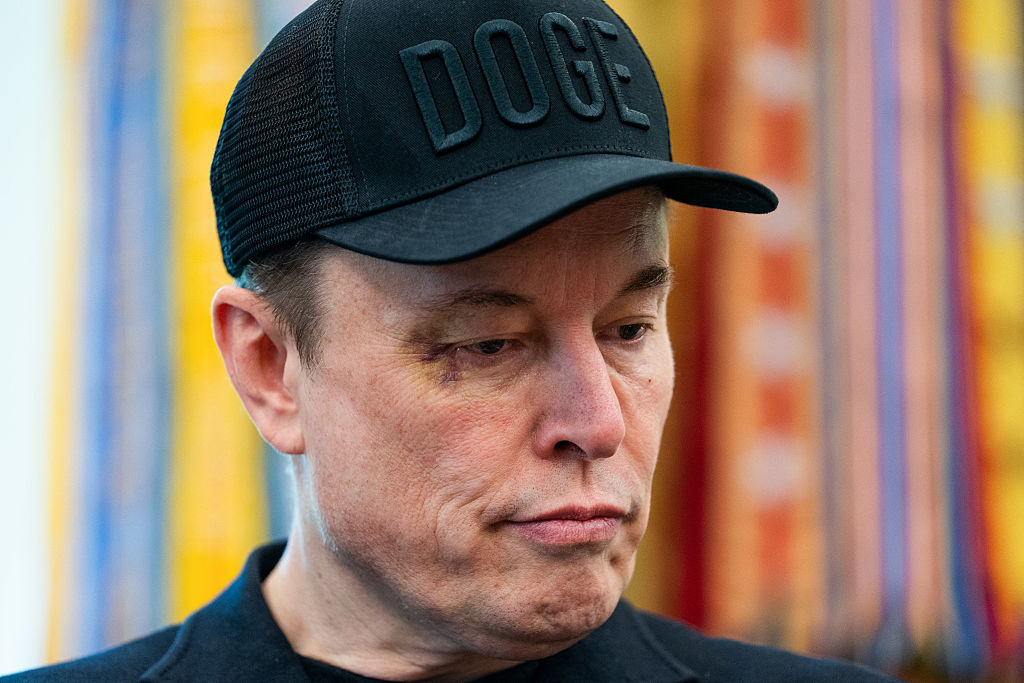Whatever the authorities in Beijing say, the anger on the streets of Hong Kong isn’t synthetic, nor is it stirred up by ‘foreign forces’. The serious, dedicated atmosphere of 2014’s umbrella protest, which lasted 79 days, is back, only this time with more violence.
Of course, the vast majority of Hong Kongers won’t be personally threatened by the passing of the extradition law — which allows Beijing to try suspects who, as matters stand, cannot be rendered across the border — but legal changes like this eat away at everyone’s security. At first, no doubt, those extradited to the mainland will be rapists and murderers. But later the prime candidates for extradition will be people who have infuriated Beijing by their public statements.
No one in Hong Kong has forgotten the case of the five Causeway Bay booksellers whose shop stocked a lurid paperback about President Xi Jinping’s private life. Under Hong Kong’s laws this was perfectly acceptable; yet they were kidnapped, taken to China and given a hard time. The new legislation would codify and legalize that sort of danger.
So even allowing for a certain amount of wishful inflation by the protest’s organizers, a seventh of Hong Kong’s entire population of nearly eight million has been turning out for the demonstrations; and the average age has been estimated at 23. In most countries this would at least make the government reconsider. But for Carrie Lam Cheng Yuet-ngor, Hong Kong’s chief executive, who spent her early career working for the British administration, backing down without Beijing’s specific agreement isn’t a choice she is free to make.
Vast crowds protesting in the streets is Beijing’s abiding nightmare. Thirty years ago, a million people took over Tiananmen Square, and although the crowds shrank dramatically over the following weeks, the authorities shot the remaining protesters down rather than negotiate with them.
Hong Kong’s defiance will enrage the Chinese leadership, and its response won’t be to tell Carrie Lam she must take the proposed legislation off the table. On the contrary: one of the guiding principles of the Xi Jinping era is that the leadership’s will must be obeyed, whatever the cost. That could be high. Hong Kong has lost some of its old economic dominance, but it’s still China’s fourth largest trading partner (only the US, Japan and South Korea do more business with Beijing). It remains China’s largest centre for international finance, and is by far the dominant source of foreign direct investment into China. Hong Kong owes most of its prosperity to its stability and relative independence. If those things start to decline, China will suffer as well.
But the fundamental principle of any autocratic system is to ensure its own survival. If the culture of protest and independence-mindedness were to spread to the mainland, the entire system of Leninist capitalism which China has developed for itself would be significantly weakened. The official Chinese media have been strictly forbidden to report the continuing demonstrations, and online censors have removed any mention of them from social media. At the beginning the discussion forum Douban carried a few screenshots of the Hong Kong protests from the BBC and CNN, but these quickly disappeared. If you search Weibo for the demonstrators’ slogan ‘Let’s Go, Hong Kong’ (‘Xianggang jiayou’ in Mandarin), you get a message saying your request has been blocked.
China will continue to insist on the extradition bill. Pro-Beijing parties have a working majority on Legco, the Hong Kong legislative body, so unless sizable numbers of previously obedient members have an unexpected change of heart, they will vote in the way that is expected of them. Still, this is an important crossroads for China, as well as Hong Kong. Even though backing down in the face of public protest goes against everything Xi Jinping and the Communist party hierarchy believe in nowadays, something will have to be done to soothe the anger on the Hong Kong streets. Carrie Lam’s emollient deputy, Matthew Cheung, has promised that any extradition requests will be selected with the greatest care. Beijing, he says, will be ‘doubly prudent’. No doubt — at first; but will a mere undertaking like that be enough to calm Hong Kong’s angry people?
This article was originally published in The Spectator magazine.

























